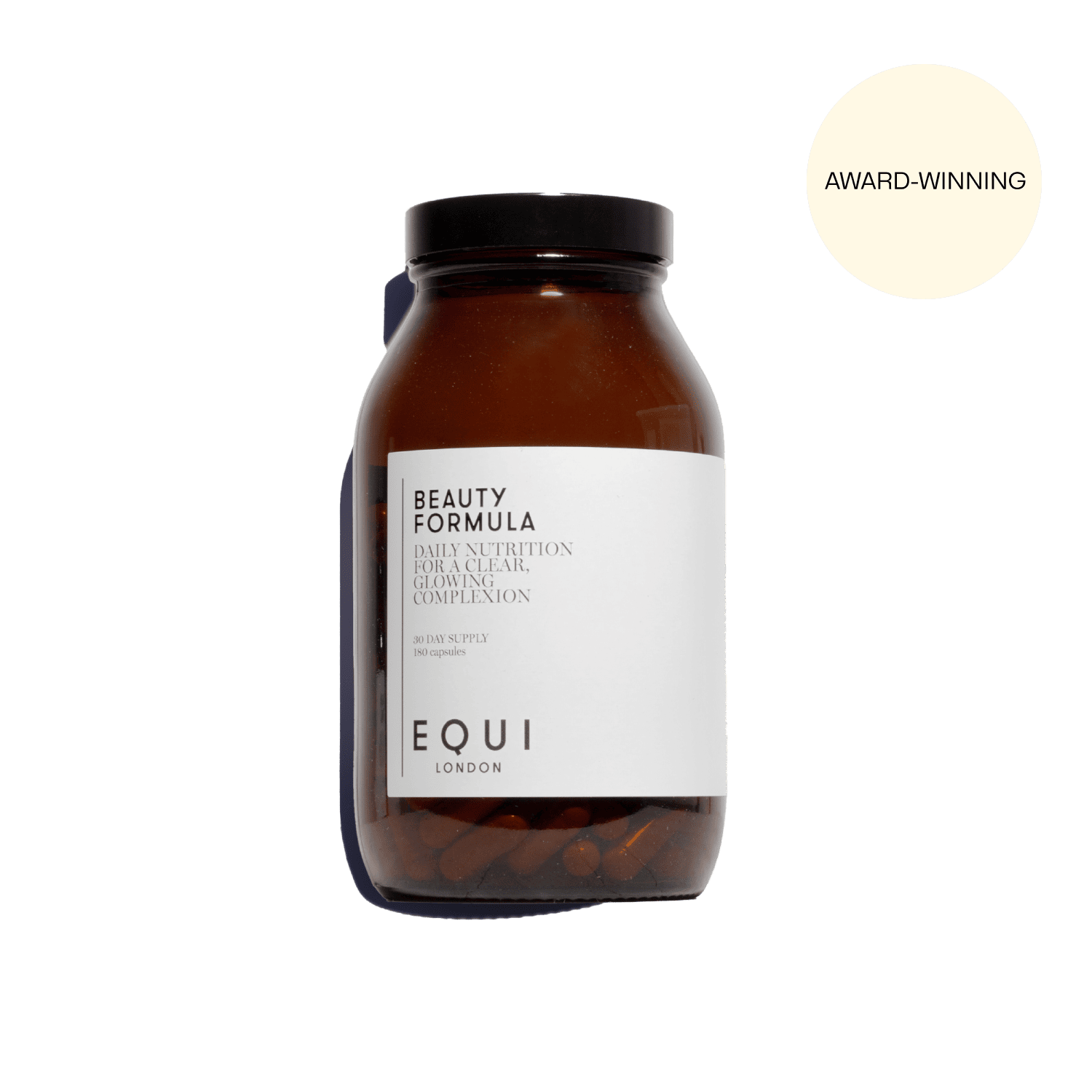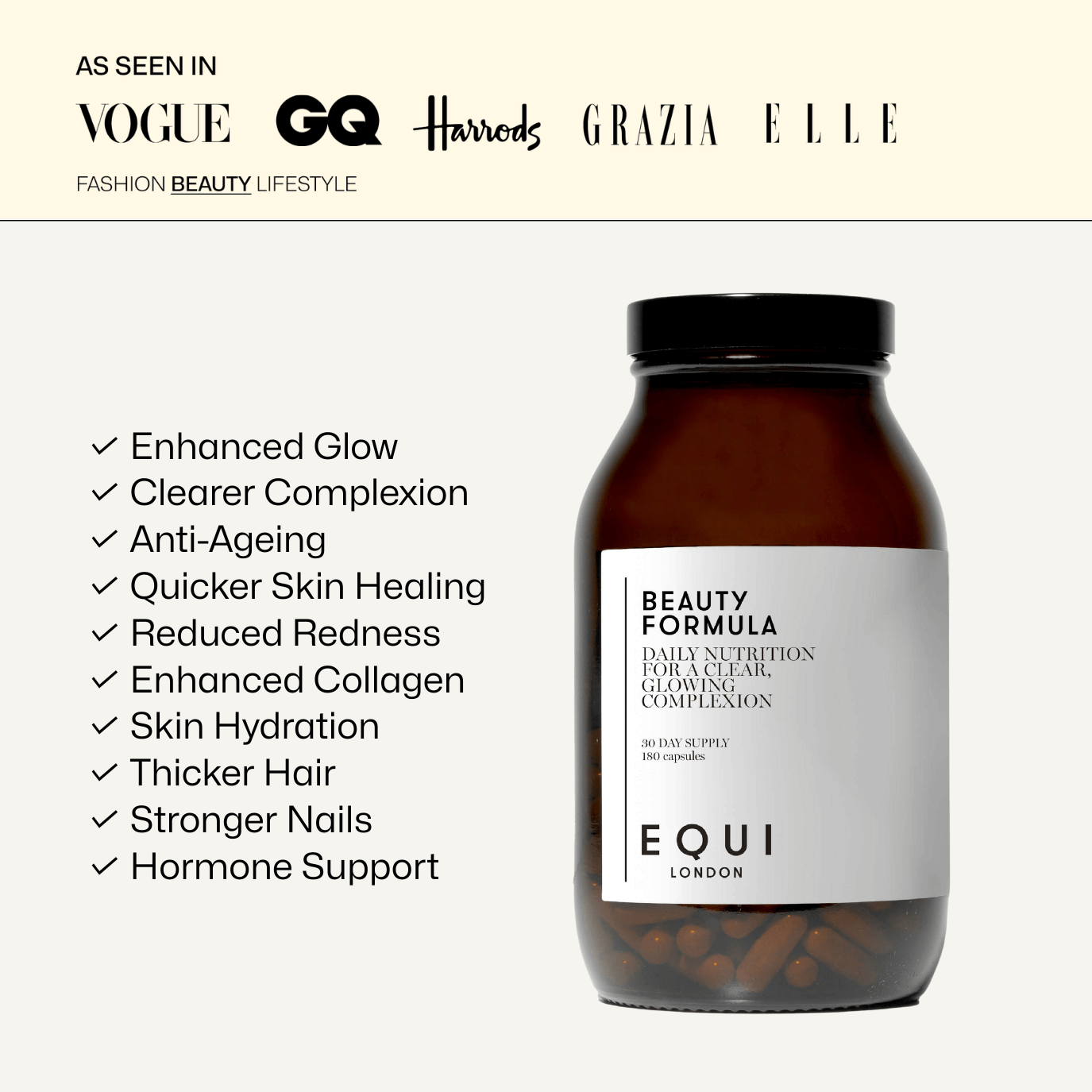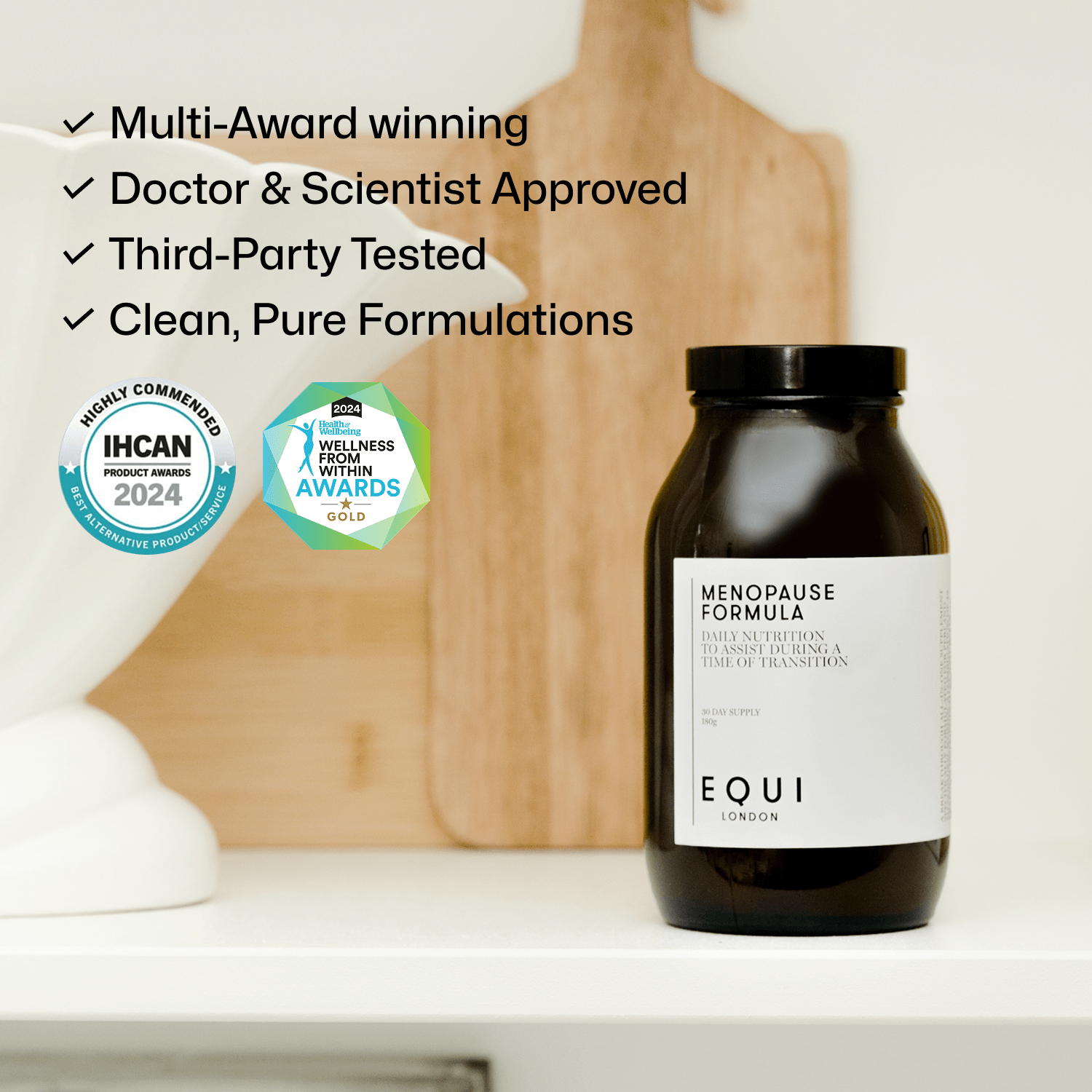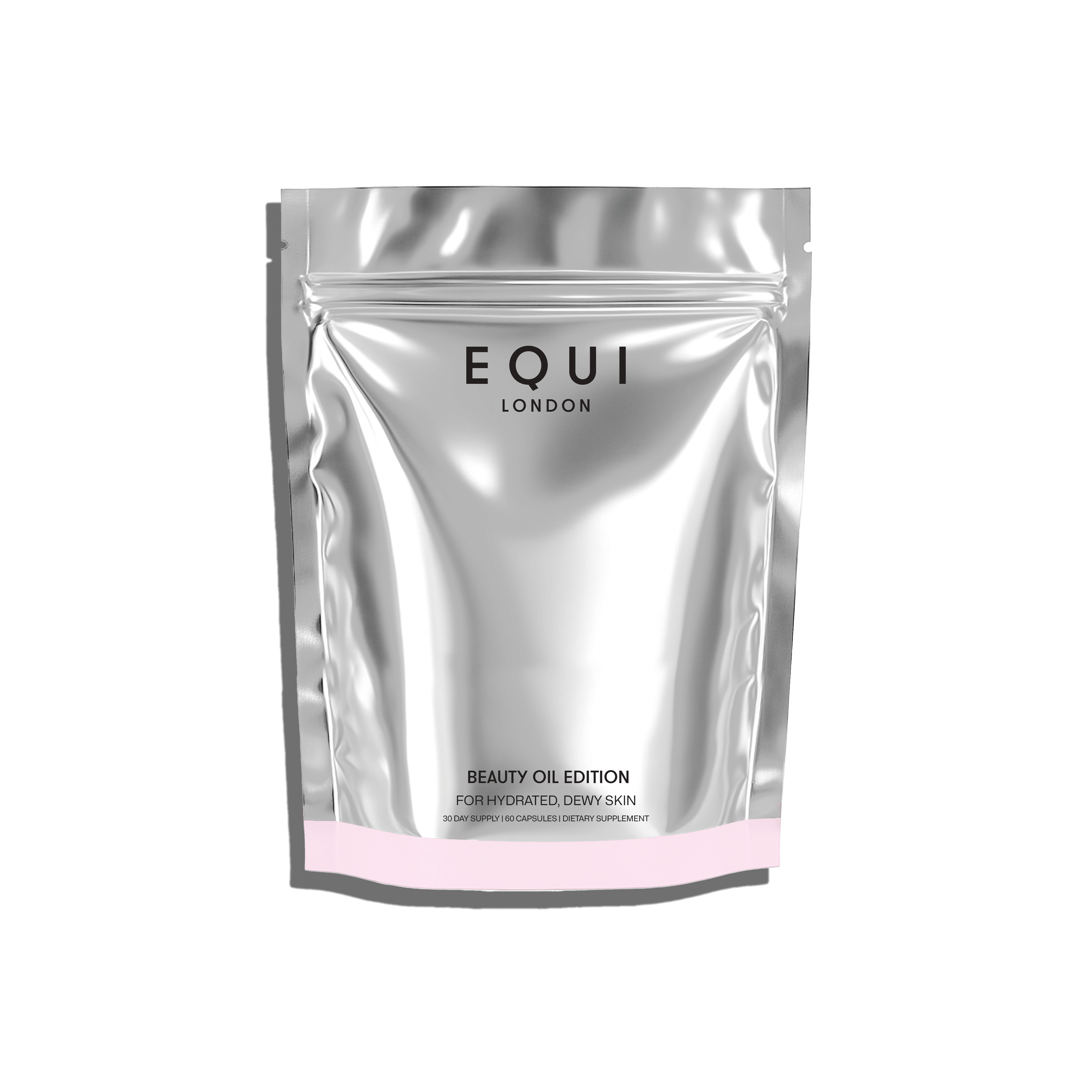The afternoon energy slump is something that most of us are familiar with.. what what can we really do to stop it? Here, Nutritional Therapist Jen Walpole gives us her tips and tricks to improve afternoon energy levels and avoid that 4pm crash.
Jen explains - “Blood sugar balance is key in supporting natural energy levels throughout the day and there are a few simple ways we can work on managing this. In addition, intake of some key nutrients that support energy production and avoiding any deficiencies are also important. There are also some important lifestyle factors that can influence our energy levels, all of which we outline below".
The Best Breakfast For Energy
Switching up your breakfast choices will make a big difference to your energy levels throughout the day.. This ie because they get your blood sugar on the right track from the get go, vital for preventing dips later in the day.
Instead of going for a carb-based breakfast such as cereals or toast, make some lean protein the star of the show. This will support balanced blood sugar levels and keep you going until lunchtime. Good options include a couple of eggs served with some smoked salmon or avocado and a side of greens such as spinach, or perhaps an overnight chia pudding served with coconut yoghurt, nut butter and some berries. Smoothies are often sugar heavy but they are really easy to adapt to make them a little more protein focused - use a base of veg (kale, spinach, avocado, cucumber, courgette) and fruit (berries, kiwi, banana) add yoghurt, protein powder, seeds, or nut butter to increase the protein content. Protein is incredibly satiating so not only will this fill you up, but it will also help curb any mid-morning sugar cravings, which can contribute to that 4pm energy slump.
GI Diet and Energy
Another way to keep blood sugar levels a little more balanced over the day is to follow the principles of a low GI diet. The idea is that food is categorised into groups according to their effect on blood sugar levels. For example, a high GI carbohydrate would spike blood sugar levels a lot quicker compared to a low GI carbohydrate. High GL carbs can leave us feeling fatigued, craving more sugar and we may struggle with brain fog too, hence the 4pm slump! The low GI concept involves omitting foods that are typically high GI such as white or refined carbohydrates, processed foods, cakes, pastries, biscuits, liquid sweeteners and focusing on more low GI options including complex carbohydrates (think brown rice, quinoa, buckwheat, lentils, beans, spelt), most vegetables and certain fruits such as berries, apples, pears, and citrus. Simple lunchtime swaps such as brown rice instead of white rice will go a long way to reducing that afternoon energy slump.
Should I Snack In The Afternoon?
In terms of snacking, we can also apply some of these principles to keep blood sugar levels balanced and avoid the 4pm slump. For example, ensuring snacks have a source of protein and have a low GI focus can help stabilise blood sugar levels. Good snack options include a banana with some nut butter, some oatcakes with hummus or a handful of berries with some nuts to maintain energy levels in the afternoon.
A handy lifestyle tip to reduce that post-meal energy low is to increase daily movement, particularly after mealtimes. A post-lunch walk will help to lower any glucose spike as well as lowering insulin levels. Studies have shown that by adopting just 10-minute of post-meal activity after each main meal of the day will reduce blood glucose concentrations considerably (1).
B Vitamins and Energy
Including some dark green leafy veg with your breakfast or lunch, such as the spinach, broccoli or cauliflower means you will be getting in the all-important B vitamins, which help with energy production. The active forms of B1, B2, B3, and B5 are all essential co-factors to produce ATP, which is the cell’s ‘energy currency’. Not only that, but the B vitamins contribute to brain function, which plays a central role in whether we feel fatigued or not (2). Alongside the B vitamins, magnesium is also required to support energy (ATP) production and deficiency can contribute to fatigue. Also found in dark green leafy veg, this mineral is a cofactor in over 300 reactions and is essential for many bodily functions, yet deficiency is quite common (3). Other good sources include wholegrains, legumes, nuts, and seeds. B12 is another important B vitamin that may help to support energy levels. A study found a link between B12 deficiency and increased levels of fatigue (4) which is one of the reasons why we add this, and all the other B vitamins and magnesium to our Formula range (Beauty, Lean, Original & Pregnancy) . Foods sources of B12 include meat, fish, eggs and dairy so anyone following a plant-based or vegetarian diet will need to supplement this essential vitamin.
Important Vitamins and Minerals For Energy
Other nutrients that contribute to energy levels include iron and iodine. Firstly, iron plays a role in the cardiovascular system, transporting oxygen around the body to the vital organs and cells. Low iron levels have been found to lead to iron-deficiency anaemia due to poor dietary intake (5). One of the most common symptoms of low iron is fatigue so if you are struggling with low energy, then it could be a good idea to check your iron levels out.
Meat, poultry, and organ meats like liver are the richest and most bio-available sources of iron. Plant-based sources include legumes, dark green leafy veg, nuts, seeds, and dried fruits like apricots, and most of these should ideally be paired with vitamin C foods to help increase absorption.
Meanwhile, iodine is responsible for regulating thyroid function, which supports a healthy metabolism. Studies have found that up to 80% of people with low thyroid hormone levels feel tired and sluggish (6). The typical western diet can be low in this key mineral but good sources include fish, seafood and seaweeds like nori and dulse. Again, it can be a good idea to consider supplementing both iron and iodine but make sure they are in ideal forms and the right dose such as as with our Formula range, (Beauty, Lean, Original & Pregnancy) which contains all of these, as well as B vitamins, magnesium and energising adaptogens.
Will Caffeine Give Me a 4pm Slump?
Caffeine is often used in the same way that a snack might be – to help give an energy boost, when blood sugar levels are plummeting, and energy levels are low. The problem is that using caffeine to increase low energy levels and activity throughout the day has also been shown in studies to cause a decrease in alertness and an increase in fatigue leading to ‘low energy’ (7). The half-life of caffeine is about 5-6 hours, which means that an afternoon coffee can still be in the system at the time we should be preparing for sleep. Therefore, it’s a good idea to reduce caffeine intake and consume tea or coffee in the morning, rather than the afternoon. Also, don’t forget those hidden sources of caffeine, such as dark chocolate, energy drinks and soft drinks.
If you have more than 2 coffees a day, decrease them back to one slowly but cutting out one per day for 2 weeks, before reducing the second one. This helps prevent symptoms of withdrawal such s headaches and fatigue. We also suggest replacing with rooibos, dandelion coffee, good old water or this amazing tea!

Adaptogens and Low Energy
Adaptogens on the other hand may be useful additions to the diet to support energy levels. As the name suggests, they adapt to the needs of the body, increasing energy when needed. The adaptogen maca is a plant native to Peru and has been used for centuries to promote energy levels. The root of the plant is dried and ground into a powder, which can then be added to foods such as smoothies, porridge, nutritional drinks, and snacks. A study found that taking maca daily for 12 weeks, promoted improved energy levels (8).
What Else Can I Do To Boost My Energy?
Lifestyle factors that can help increase energy levels include supporting the natural sleep/wake cycle, known as the circadian rhythm. Studies show us that energy metabolism is regulated by many hormones, enzymes, and systems, but the circadian rhythm modulates the way they work (9). The stress hormone, cortisol naturally rises in the morning but if this rise is too exaggerated and levels are elevated throughout the day, this can cause an imbalance in blood sugar levels. To counteract elevated cortisol and support the sleep/wake cycle, adapting your morning routine can be helpful. For example, allowing some extra time in the morning for a restorative practice such as yoga or meditation will help calm the nervous system and support more balanced cortisol levels. Daylight first thing will also help to regulate the natural circadian rhythm, which in turn has a positive influence on cortisol levels. Keeping stress levels in check throughout the day with regular breaks or an afternoon walk will also help reduce the likelihood of that 4pm energy slump.
How Can I Sleep Better?
Good quality sleep is another important factor when it comes to avoiding the afternoon slump. We all know how much better our day goes when we wake up feeling well rested after a good 7-8 hours sleep! To support sleep, it’s important to establish a bedtime routine that ensures you get an early night and therefore, good quality sleep. Blue light emitted from the tv, mobile phones and laptops disrupts the production of melatonin, our sleep hormone so it’s best to avoid exposure around two hours before bedtime. Otherwise, blue light blocking glasses can be a good option. Winding down before bed with a relaxing bath or a good book can also be really helpful to prepare for sleep.
Disclaimer: Certain supplements are used for different reasons and a one-size-fits-all approach shouldn’t be adopted. In addition, pregnant women and anyone on medication should always consult a doctor before embarking on a supplements programme. As with all articles on www.equilondon.com, this is no substitution for individual medical or nutritional advice.












